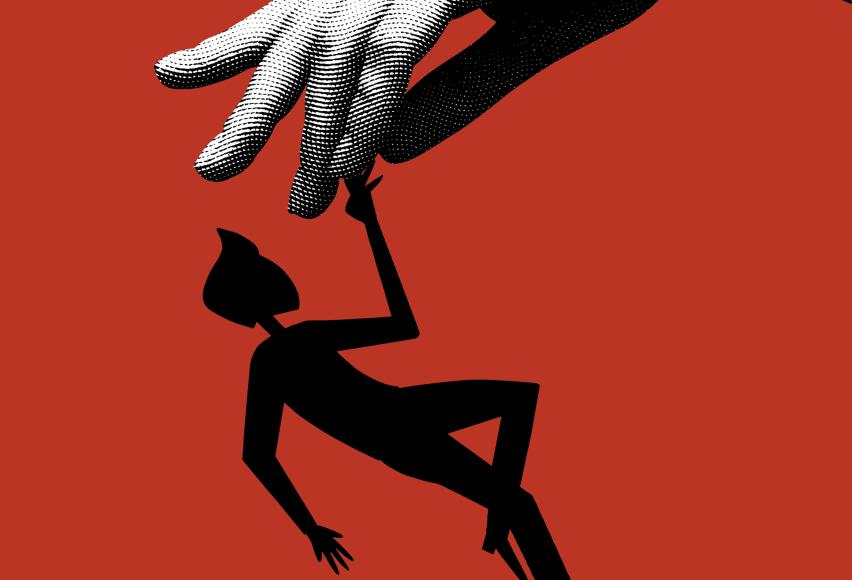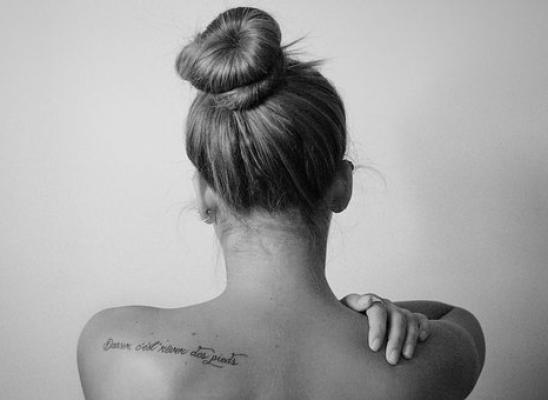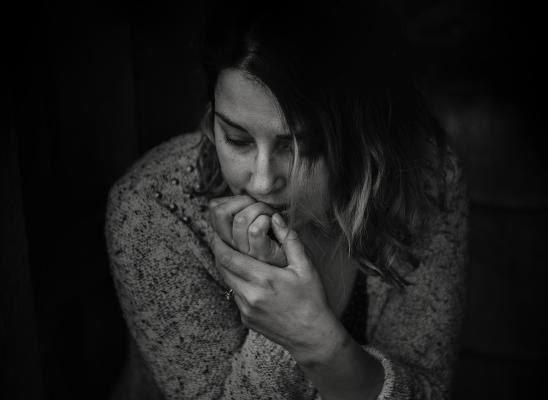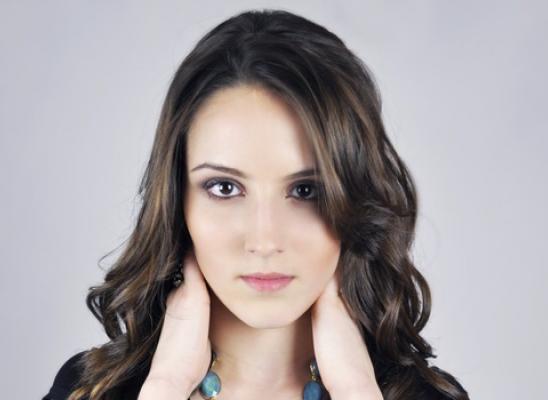Onychophagia and Skin Picking: Between Dermatology and Psychiatry

Online test
Find out the severity of your symptoms with this free online test
When there’s a problem involving the skin, the first place most people start is with a dermatologist. After all, they are specialists in the treatment of skin conditions. The picture can get a little more complicated when the skin condition is either a symptom of a psychiatric disorder or co-occurring with a psychiatric disorder.
Psychiatrists are specialists in treating psychiatric disorders, but they aren’t always the first stop when someone is also dealing with a dermatologic condition. It has been estimated that about 30-40% of people with a dermatological issue also have a psychiatric comorbidity and about 25% will seek out a dermatologist first. As a result, dermatologists are often tasked with trying to determine just what is happening and what the best course of treatment might be. It can be frustrating not only for the patient but also for the provider who is trying to provide the best care for something outside of their expertise.
This intersection of dermatology and mental health has highlighted the need for increased and understanding of psychocutaneous disorders and their treatment across disciplines. What can dermatologists and mental health providers do to improve treatment for people living with these disorders? Reviewing over 2000 articles, a new study takes a closer look at psychocutaneous disorders through a psychotherapeutic lens and offers a “toolkit” to aid dermatologists and others in understanding and treating psychocutaneous disorders.
What Are Psychocutaneous Disorders?
Psychocutaneous disorders are disorders that affect both the skin and the mind. They ae unique in that they have both psychological and psychiatric components. In other words, they present with physical or dermatological symptoms as well as psychiatric symptoms. A few examples include:
- Body focused repetitive disorders such as excoriation disorder (skin picking), onychophagia (nail biting) and trichotillomania (hair pulling)
- acne vulgaris or excoriée
- alopecia areata
- hyperhidrosis
- dermatitis
- lichen simplex chronicus
- psoriasis
- rosacea
- vitiligo
- vulvodynia
- body dysmorphic disorder (BDD)
- delusions of parasitosis
- eating disorders (bulimia nervosa, anorexia nervosa)
Some of these disorders are dermatologic disorders with psychiatric manifestations. Others, like excoriation disorder (skin picking) and onychophagia (nail biting) are psychiatric disorders with dermatologic manifestations. Even though they are classified psychiatrically, it is not uncommon for people to seek the help of a dermatologist at least initially. Sometimes, patients are unwilling to see a mental health provider.
The literature review found that psychocutaneous disorders and primary dermatologic conditions were associated with three primary DSM-5 classifications:
- depressive disorders
- anxiety disorders
- obsessive compulsive disorders
However, there were also some surprising findings. For example, psoriasis was associated with a higher incidence of a comorbid personality disorder that might go undetected without an awareness of the possible comorbidity.
Most non-psychiatric providers are not well-versed in the nuances of psychiatric treatment. These findings suggest that dermatologists and others can benefit from a better understanding of the interconnectedness of dermatologic and psychiatric factors.
What This Means for Treatment
The review also examined the literature and treatment options for people with psychocutaneous disorders, both dermatologic disorders with psychiatric manifestations and psychiatric disorders with dermatologic manifestations. The findings highlight the fact that providers other than mental health clinicians, most often dermatologists, frequently encounter people with conditions that may be both dermatologic and psychiatric in nature, requiring a more comprehensive treatment approach. Treating one without treating the other is not likely to bring long term relief for the person seeking help.
The study authors advocate for the need for accurate assessment for psychiatric conditions that may be present. Based on the literature, they offer suggestions for screening tools for each of the disorders they reviewed. Psychiatric disorders with dermatologic symptoms can be especially tricky. What appears to be a skin issue, like skin lesions, for example, may in fact be a psychiatric disorder like excoriation disorder. Accurate assessments can help to clarify and guide treatment.
The review outlines a number of treatment recommendations that based on the current literature. Treatment for primary dermatologic conditions depends on the condition being presented. However, they do advocate for the assessment of the presence of psychiatric comorbidities and the inclusion of those in the treatment process. The article provides an extensive discussion of each of these disorders and makes recommendations based on their review of the literature.
Treatment for psychiatric disorders with dermatologic manifestations like skin picking and onychophagia include:
- cognitive behavioral therapies
- Acceptance-enhanced behavioral therapy
- Dialectical Behavior Therapy
- Alternative therapies including mindfulness, art therapy, acupuncture, and psychoeducation for the person and their family.
- Pharmacological interventions depending on the presentation
These findings are in keeping what is currently known about treating BFRBs and other psychogenic disorders.
Where dermatology and psychiatry intersect, consultation and collaboration may be the key to optimal treatment. The authors note that their intent is “not to encourage dermatologists to prescribe psychotropic medications or psychotherapeutic modalities without specific training, but to provide information for better management of psychocutaneous disorders.” They advocate for collaboration and consultation with mental health professionals in determining the best course of treatment. Referral to a psychiatrist or mental health provider might be the best option but sometimes patients are adamantly unwilling or unable to do so.
Mental health professionals can also benefit from consultation and collaboration with a person’s dermatologist when both services are needed. Consultation can help to provide support and guidance especially with complicated presentations.
The Takeaway
Studies like this one highlight the complexity of psychocutaneous disorders and the need for a multidisciplinary approach. When you bring all of the experts to the treatment table, it increases the chances for optimal treatment based on that person’s unique needs. Optimal treatment means better outcomes.
So, if you or someone you love is dealing with a psychocutaneous disorder, the logical question might be, “Do I need a psychiatrist or a dermatologist?” When it comes to body-focused repetitive behaviors (BFRBs) and other skin disorders, the answer just might be both.
References
1. Yadav, Savita & Narang, Tarun & Kumaran, Muthu Sendhil. (2013). Psychodermatology: A comprehensive review. Indian journal of dermatology, venereology and leprology. 79. 176-92. https://www.researchgate.net/deref/http%3A%2F%2Fdx.doi.org%2F10.4103%2F0378-6323.107632
2. Rangu, S., & Castelo-Soccio, L. (2020). Trichotillomania in children and the different approaches between dermatological and behavioral health professionals at an urban tertiary care center. Skin Appendage Disorders, 7(1), 1-7. https://www.karger.com/Article/FullText/510524
3. Zagami, M., Klepper, E., Wienecke, E., Andrzejewski, M., Sikder, A., Ahmed, A., & Robinson, H. (2023). A review of psychocutaneous disorders from a psychotherapeutic perspective—Toolkit for the dermatologist. Skin Health and Disease. https://onlinelibrary.wiley.com/doi/full/10.1002/ski2.211
4. Diagnostic and statistical manual of mental disorders. (n.d.). DSM Library. https://dsm.psychiatryonline.org/doi/book/10.1176/appi.books.9780890425787
Online test
Find out the severity of your symptoms with this free online test
Start your journey with SkinPick
Take control of your life and find freedom from skin picking through professional therapy and evidence-based behavioral techniques.
Start Now



